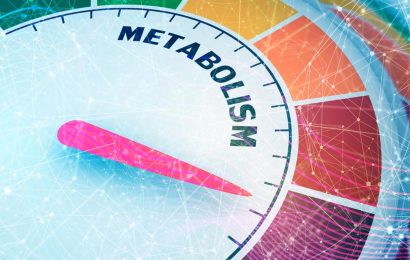Time to get your flu shot! People who have type 1, type 2, or gestational diabetes are strongly encouraged to get an annual flu vaccine (shot). That’s because having diabetes puts you at risk of developing serious complications from the flu, including pneumonia, bronchitis, sinus infections, and ear infections. Complications can be serious enough to require hospitalization and lead to a higher risk of death. But you might have questions about getting a flu shot, especially with the recent COVID-19 pandemic. Let’s explore some common misconceptions about the flu shot in an effort to get your questions answered!
1. You only need to get the flu shot once.
Fallacy.
The CDC (Centers for Disease Control and Prevention) recommends everyone who is 6 months of age and older get a flu shot every year with rare exceptions. Why every year? The flu shot has to be “updated” each year because flu viruses constantly change every year. Also, your immune protection from the vaccine declines over time.
2. You can get the flu at any time of the year.
Fact.
It’s possible to have the flu in middle of the summer, but flu viruses are more prevalent during the fall and winter months. Flu activity tends to start increasing in October and peaks between December and February, although activity can last into May.
To get cutting-edge diabetes news, strategies for blood glucose management, nutrition tips, healthy recipes, and more delivered straight to your inbox, sign up for our free newsletters!
3. If you get the flu shot, you’re 100% protected against getting the flu.
Fallacy.
Studies indicate that the flu vaccine reduces the risk of illness by between 40% and 60%. That’s due, in part, to how well the flu vaccine matches the flu virus that’s circulating in the public. However, public health experts believe that even some protection against the flu is beneficial and that getting a flu shot is worthwhile in order to prevent serious complications.
4. Some people shouldn’t get a flu shot.
Fact.
While the flu shot is safe for most people, there are people who shouldn’t get one, including:
- Children under 6 months of age
- People who have a severe, life-threatening allergy (other than an egg allergy) to any of the ingredients in the vaccine.
- People who have had a severe allergic reaction to a flu shot. Talk to your provider if you’ve had a previous allergic reaction to see if you should get a flu shot this year.
- If you’ve had Guillain-Barré Syndrome, you should talk with your provider to see if the vaccine is safe for you.
5. You can get a flu shot even if you’re allergic to eggs.
Fact.
Chicken eggs are used to make most of the flu vaccines in the United States, so these vaccines contain a small amount of egg protein. Studies show, however, that in people with an egg allergy, severe allergic reactions are unlikely. A person with an egg allergy who experiences only hives when exposed to eggs can get a flu vaccine. Flu vaccines are also produced without eggs; some are made using cells from mammals, and some are made synthetically using recombinant technology. Talk with your provider about getting a vaccine that is not grown in eggs if you have concerns.
6. You can get the flu from getting a flu shot.
Fallacy.
This is perhaps one of the most common misconceptions about getting a flu shot. While you can still get the flu even after having a flu shot, the flu shot doesn’t cause the flu. That’s because flu shots are made with inactivated (“killed”) viruses or with just a single protein from the flu virus. The nasal spray vaccine contains weakened live viruses, so they can’t cause illness.
7. It’s not recommended that people with diabetes get the nasal spray flu vaccine.
Fact (partially).
The CDC states that healthy, non-pregnant people ages 2 to 49 years can get the nasal spray flu vaccine, but others should not. This includes:
- Adults 50 years and older
- People with weakened immune systems
- Pregnant women
- People who don’t have a spleen or who have a non-functioning spleen
- People with cochlear implants
The CDC states that the nasal spray flu vaccine should be used with caution with these medical conditions:
- Asthma
- Lung disease
- Heart disease
- Diabetes
- Moderate or severe acute illness
- Guillain-Barré Syndrome within six weeks following a previous dose of flu vaccine
Why? “Because the safety and effectiveness of this vaccine in people with those conditions has not been established,” says the CDC. Be sure to talk with your provider if you are thinking of getting the nasal spray flu vaccine.
8. You shouldn’t get the flu vaccine and the COVID-19 vaccine (or booster shot) at the same time.
Fallacy.
You certainly can get both the flu vaccine and the COVID-19 vaccine at the same time — you can even get them at the same visit if you are seeing your provider.
Note: If you have COVID-19, you should not go out to get the flu vaccine until you have met the criteria for ending your isolation. This is in an effort to avoid exposing health care workers and other patients to the COVID-19 virus. For more about this, visit the CDC’s website.
Learn more about vaccinations in “Type 1 Diabetes: Five Vaccines That You May Need” and “Vaccines for People With Diabetes.”





